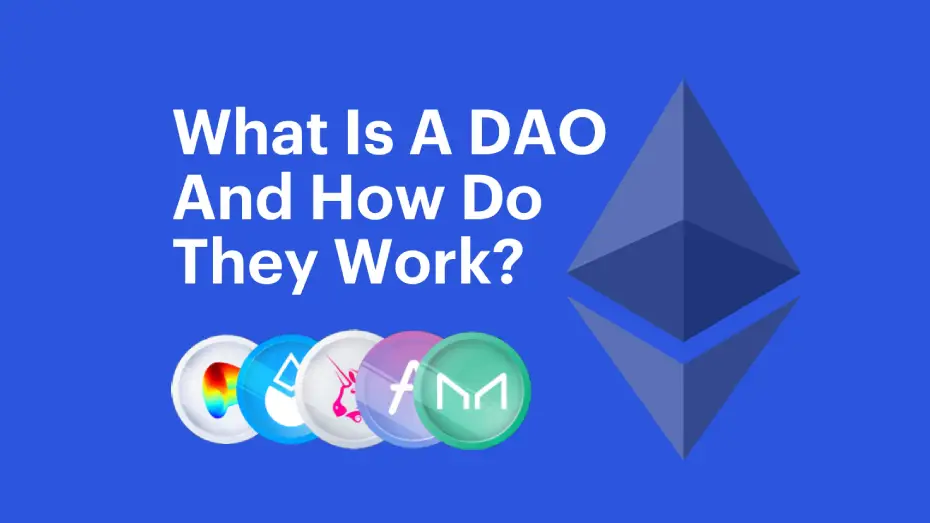What is a Decentralized Autonomous Organization (DAO)? A Beginner’s Guide
In recent years, the rise of blockchain technology has introduced a lot of new concepts into our everyday conversations, and one of the more fascinating terms that has gained attention is the Decentralized Autonomous Organization—or DAO. But what exactly is a DAO, and why should we care?
What is a DAO?
At its core, a DAO is a new way to structure an organization. Unlike traditional companies, which are governed by centralized leadership (think CEOs, boards of directors), a DAO operates through a set of rules encoded on a blockchain. These rules are often created by smart contracts, which are self-executing contracts with the terms of the agreement directly written into code.
But that’s just the technical side. To put it more simply: a DAO is an organization where decisions are made collectively by its members, without relying on a single leader or centralized authority. Everyone who holds a stake (usually in the form of a token) has a say in the direction the organization takes.
How Does a DAO Work?
Think of a DAO as a digital cooperative. Instead of having one person or a small group calling the shots, members of the DAO make decisions together by voting on proposals. These proposals can range from how to allocate funds to what new features should be added to a product.
Here’s how it works in simple terms:
Proposal Submission
Any member of the DAO can submit a proposal for a vote. This could be about funding a new project, changing a protocol, or even updating the governance rules themselves.
Voting
Once a proposal is submitted, all DAO members can cast their votes. Voting power is often proportional to the number of tokens a person holds. The more tokens you have, the bigger your vote.
Execution
If the proposal gets enough votes, it is automatically executed by the smart contract on the blockchain. This ensures that once a decision is made, it happens without the need for human intervention.
Why Are DAOs Important?
DAOs represent a big shift in how we think about organizing groups of people. In a world where transparency, efficiency, and community engagement are becoming more valued, DAOs offer a compelling alternative to traditional organizations.
Key Benefits of DAOs
Transparency
Because everything is built on a blockchain, all actions and decisions are visible and verifiable by anyone. This level of transparency is hard to achieve in traditional businesses.
Decentralization
No single person or entity has full control. This reduces the risk of corruption, mismanagement, or abuse of power.
Community-Driven
Members have a direct say in how the organization is run, leading to a more engaged and invested community.
Global Access
DAOs are open to anyone with an internet connection, making it possible for people from all over the world to participate.
Real-World Examples of DAOs
While the idea of a DAO might sound futuristic, many DAOs are already up and running today. Some notable examples include:
MakerDAO
This DAO is behind the DAI stablecoin, which is a cryptocurrency pegged to the US dollar. MakerDAO governs how the DAI is created and managed, and it allows its token holders to vote on important decisions related to the project.
Uniswap DAO
Uniswap, a decentralized exchange, is governed by a DAO. Token holders can propose changes to the platform and vote on them, ensuring the community drives the evolution of the protocol.
Friends with Benefits (FWB)
FWB is a social DAO where members hold tokens to gain access to events, content, and other perks. The DAO structure allows the community to decide how resources are used and how the project evolves.
The Challenges of DAOs
As promising as DAOs are, they aren’t without challenges. One major concern is governance attacks—situations where a small group of token holders with significant voting power could steer the organization in a direction that benefits them more than the broader community. Another issue is coordination, as getting thousands of people to agree on something can be difficult, especially when decisions need to be made quickly.
Additionally, while DAOs provide transparency, they can also introduce legal and regulatory uncertainties, as laws around decentralized organizations are still evolving.
Final Thoughts: The Future of DAOs
DAOs are still a relatively new concept, but they hold a lot of promise. They offer a transparent, decentralized way for people to collaborate and make decisions together—without the need for a centralized authority. As more people become familiar with blockchain technology, it’s likely we’ll see more DAOs pop up across various industries, from finance to gaming and even social causes.
While the future of DAOs is still unfolding, one thing is certain: this new way of organizing has the potential to reshape how we work, collaborate, and govern in the digital age.
Have you heard about DAOs before? What do you think—are they the future of organizations, or just another blockchain buzzword? Let us know in the comments!

